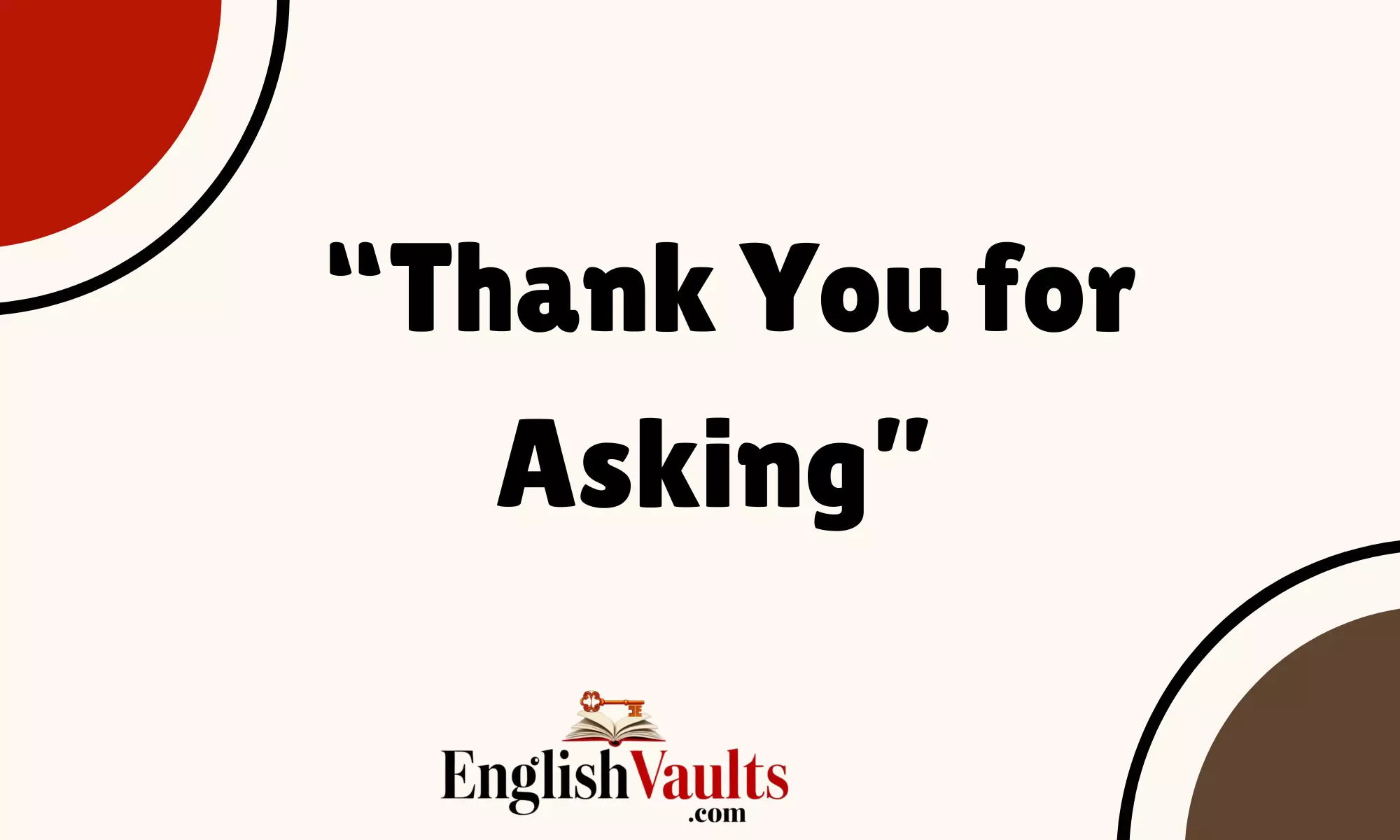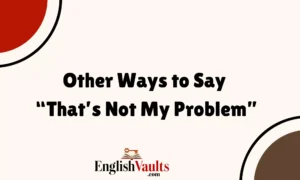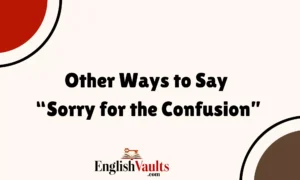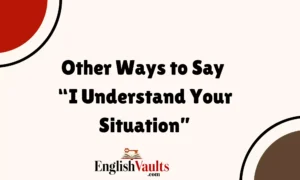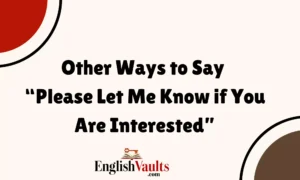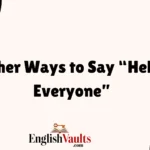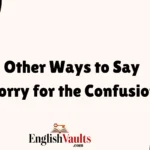In the art of communication, expressing gratitude for someone’s concern or interest goes beyond mere words. Whether in professional correspondence or personal conversations, the way we acknowledge inquiries can significantly impact relationships. “Thank you for asking” is a phrase often used, but there are numerous alternatives that can convey appreciation more vividly and effectively. This article explores 22 diverse ways to express gratitude in response to inquiries, providing scenarios and examples to illustrate their nuanced use. By incorporating these alternatives into your communication repertoire, you can enrich interactions and strengthen connections with others, fostering a culture of gratitude and understanding in every exchange.
List of Other Ways to Say “Thank You for Asking”
- I appreciate your concern.
- It means a lot that you asked.
- Your thoughtfulness is noted.
- I’m grateful you inquired.
- I’m touched by your interest.
- It’s nice of you to ask.
- Thanks for checking in.
- I’m thankful for your question.
- Your inquiry is appreciated.
- I’m glad you asked.
- Your concern is valued.
- It’s kind of you to inquire.
- I appreciate your curiosity.
- Thanks for your interest.
- I’m thankful for your concern.
- I’m grateful you asked.
- I appreciate your checking in.
- Your question is appreciated.
- It’s thoughtful of you to ask.
- Your inquiry means a lot.
- I’m thankful for your thoughtfulness.
- Your concern does not go unnoticed.
1. I appreciate your concern.
- Scenario:
Dear Leo,
Thank you so much for asking about my well-being. I appreciate your concern, especially during these challenging times. Rest assured, I’m doing well and looking forward to catching up soon.
Best regards, Henry
Additional Insight: This phrase emphasizes gratitude for genuine care and concern, suitable for personal and professional contexts alike.
2. It means a lot that you asked.
- Scenario:
Hi Leo,
Just a quick note to say how much it means to me that you asked about my presentation yesterday. Your interest truly encourages me to strive for excellence.
Warm regards, Henry
Additional Insight: This response shows appreciation for a specific interest shown by someone, fostering positive rapport.
3. Your thoughtfulness is noted.
- Scenario:
Dear Leo,
Thank you for your email. Your thoughtfulness is noted, and I appreciate your attention to detail.
Best regards, Henry
Additional Insight: Acknowledging someone’s thoughtfulness emphasizes their considerate nature, suitable for formal communications.
4. I’m grateful you inquired.
- Scenario:
Hi Leo,
Thank you for inquiring about the project status. I’m grateful you took the time to check in.
Best regards, Henry
Additional Insight: This phrase conveys appreciation for someone’s proactive approach to seeking information.
5. I’m touched by your interest.
- Scenario:
Dear Leo,
Thank you for your interest in the new initiative. I’m touched by your enthusiasm and look forward to discussing it further.
Warm regards, Henry
Additional Insight: This response shows emotional gratitude for someone’s keen interest, suitable for informal settings.
6. It’s nice of you to ask.
- Scenario:
Hi Leo,
Thanks for asking about my weekend plans. It’s nice of you to show interest.
Best, Henry
Additional Insight: This phrase appreciates someone’s polite inquiry, making it ideal for casual conversations.
7. Thanks for checking in.
- Scenario:
Hi Leo,
Thanks for checking in on the meeting schedule. Your proactive approach is greatly appreciated.
Best regards, Henry
Additional Insight: This expression acknowledges someone’s effort in keeping informed, suitable for professional settings.
8. I’m thankful for your question.
- Scenario:
Dear Leo,
Thank you for your insightful question during the webinar. I’m thankful for your contribution to the discussion.
Best regards, Henry
Additional Insight: This phrase shows gratitude for someone’s engagement and active participation.
9. Your inquiry is appreciated.
- Scenario:
Hi Leo,
Your inquiry about the upcoming event is appreciated. I’ll provide you with more details shortly.
Best, Henry
Additional Insight: This response acknowledges someone’s formal inquiry, indicating a forthcoming response.
10. I’m glad you asked.
- Scenario:
Dear Leo,
I’m glad you asked about the client’s expectations. It shows your commitment to delivering quality work.
Best regards, Henry
Additional Insight: This phrase expresses satisfaction with someone’s relevant question, fostering dialogue and clarity.
11. Your concern is valued.
- Scenario:
Hi Leo,
Thank you for your concern about the deadline. Your proactive approach is valued.
Warm regards, Henry
Additional Insight: This expression appreciates someone’s concern for important matters, and is suitable for work-related communications.
12. It’s kind of you to inquire.
- Scenario:
Dear Leo,
It’s kind of you to inquire about my family. I appreciate your thoughtfulness.
Best regards, Henry
Additional Insight: This phrase acknowledges someone’s empathy and care in personal conversations.
13. I appreciate your curiosity.
- Scenario:
Hi Leo,
I appreciate your curiosity about the project goals. Let’s discuss them in our next meeting.
Best, Henry
Additional Insight: This response encourages further discussion and collaboration based on someone’s curiosity.
14. Thanks for your interest.
- Scenario:
Dear Leo,
Thanks for your interest in the latest developments. Your support means a lot.
Warm regards, Henry
Additional Insight: This phrase acknowledges someone’s ongoing interest and engagement in shared activities.
15. I’m thankful for your concern.
- Scenario:
Hi Leo,
I’m thankful for your concern regarding the budget. Let’s address it in our upcoming review.
Best regards, Henry
Additional Insight: This expression appreciates someone’s focused concern on specific issues, indicating readiness to address them.
16. I’m grateful you asked.
- Scenario:
Dear Leo,
I’m grateful you asked about my opinion. Let’s discuss it further in our next team meeting.
Best regards, Henry
Additional Insight: This phrase expresses gratitude for someone’s initiative in seeking input or feedback.
17. I appreciate your checking in.
Scenario:
Hi Leo,
I appreciate your checking in on the project status. Your diligence is commendable.
Best regards, Henry
Additional Insight: This response acknowledges someone’s regular updates or inquiries, fostering transparency and teamwork.
18. Your question is appreciated.
- Scenario:
Dear Leo,
Your question during the training session is appreciated. Let’s explore the topic more in our follow-up session.
Warm regards, Henry
Additional Insight: This phrase highlights appreciation for someone’s specific question, indicating interest in further discussion.
19. It’s thoughtful of you to ask.
- Scenario:
Hi Leo,
It’s thoughtful of you to ask about my opinion on the proposal. I value your consideration.
Best regards, Henry
Additional Insight: This expression appreciates someone’s consideration before making decisions or seeking opinions.
20. Your inquiry means a lot.
- Scenario:
Dear Leo,
Your inquiry about our project progress means a lot to me. Let’s discuss it further in our next meeting.
Best, Henry
Additional Insight: This phrase emphasizes the significance of someone’s inquiry, indicating its impact on shared goals.
21. I’m thankful for your thoughtfulness.
- Scenario:
Hi Leo,
I’m thankful for your thoughtfulness in asking about my health. Your concern brightened my day.
Warm regards, Henry
Additional Insight: This response appreciates someone’s caring attitude, which is suitable for personal communications.
22. Your concern does not go unnoticed.
- Scenario:
Dear Leo,
Your concern about the recent challenges does not go unnoticed. Let’s address them together.
Best regards, Henry
Additional Insight: This phrase acknowledges someone’s awareness and readiness to collaborate on resolving issues.
Conclusion
In conclusion, expressing gratitude for inquiries can strengthen relationships and foster a positive atmosphere in both personal and professional interactions. By using these alternatives, you can tailor your response to suit the context and deepen connections with others.
This article provides a comprehensive guide to effectively conveying appreciation in various scenarios, enhancing communication skills, and fostering meaningful relationships.
